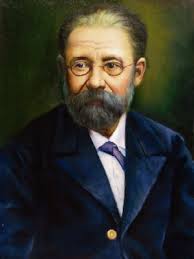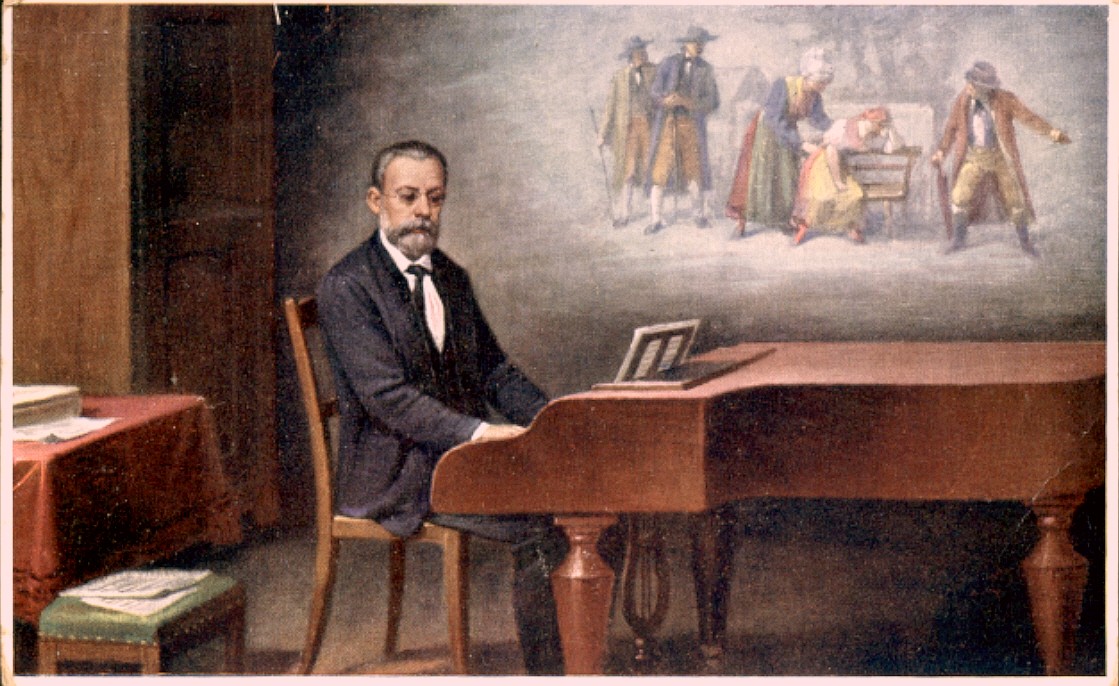Bedřich Smetana (1824–1884) is celebrated as the father of Czech national music. A pioneering composer, he played a pivotal role in establishing a distinct Czech musical identity during the 19th century, blending romanticism with traditional Bohemian and Moravian folk elements. His works not only reflect his deep national pride but also his innovative spirit, making him a central figure in the development of Czech classical music.
Early Life and Musical Beginnings
Smetana was born on March 2, 1824, in Litomyšl, Bohemia, then part of the Austrian Empire. Coming from a modest family, his father worked as a brewer and was an amateur violinist, which introduced young Bedřich to music at an early age. Demonstrating prodigious talent, he gave his first public piano performance at six. Despite his clear aptitude, his family prioritized a traditional education, but Smetana’s passion for music remained unwavering.
Education and Early Career
In 1843, Smetana moved to Prague, determined to pursue a career in music. He studied privately with Josef Proksch, refining his piano skills and compositional techniques. Inspired by Franz Liszt, whom he admired greatly, Smetana embraced the ideals of the Romantic movement, experimenting with innovative harmonies and forms.
During the revolutionary year of 1848, Smetana opened a music school in Prague, attracting many students and gaining recognition as a talented pianist and teacher. However, financial difficulties and personal struggles led him to seek new opportunities abroad.
Swedish Years and Compositional Growth
In 1856, Smetana relocated to Gothenburg, Sweden, where he worked as a conductor, teacher, and pianist. This period proved fruitful for his compositional development, allowing him to mature artistically and compose significant works, including symphonic poems and chamber music. Despite professional success, he longed to contribute more directly to Czech cultural life.
Return to Bohemia and Nationalistic Works
Returning to Prague in 1861, Smetana became a leading figure in the Czech National Revival, a movement aimed at promoting Czech language, culture, and identity. He composed operas and orchestral works infused with nationalistic themes, the most famous being The Bartered Bride (1866). This comic opera, with its lively dances and folk-inspired melodies, remains a cornerstone of Czech operatic repertoire.
Smetana also composed the celebrated cycle of symphonic poems Má vlast (My Homeland), which includes the iconic piece Vltava (The Moldau). This work vividly depicts the journey of the Vltava River through the Czech countryside, showcasing his masterful orchestration and deep connection to his homeland.
Personal Struggles and Later Years
Tragically, Smetana began to lose his hearing in 1874, eventually becoming completely deaf. Despite this devastating setback, he continued to compose, producing some of his most profound works during this period, including later parts of Má vlast and his String Quartet No. 1 in E minor, From My Life. These compositions reflect his personal struggles, emotional depth, and enduring passion for music.
Smetana’s health deteriorated rapidly in his final years, exacerbated by mental illness. He spent his last days in an asylum in Prague, where he passed away on May 12, 1884.
Legacy
Bedřich Smetana’s contributions to classical music are immeasurable. He laid the foundation for Czech national music, inspiring future composers like Antonín Dvořák and Leoš Janáček. His works continue to be celebrated for their lyrical beauty, nationalistic fervor, and emotional resonance, securing his place as a towering figure in the history of classical music.


Comments are closed